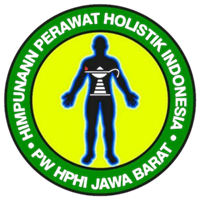Correlation Between Spirituality Levels and Self-Esteem Among First-Year Students in Health Science Programs
DOI:
https://doi.org/10.56359/gj.v6i1.454Keywords:
students, self-Esteem, spiritualityAbstract
Introduction: Spirituality is one of the important aspects in human life that can affect various psychological aspects, including self-esteem. New students often face adaptation challenges that can affect their self-esteem. Understanding the relationship between the level of spirituality and self-esteem is important to support student well-being, especially in the Health Study Program of the University of Muhammadiyah East Kalimantan.
Objective: This study aims to determine the relationship between the level of spirituality and self-esteem of new students in the Health Study Program, Muhammadiyah University of East Kalimantan.
Research Method: This study used a cross-sectional design. Measurement of spirituality levels was carried out using the Daily Spiritual Experience Scale (DSES) which has been adapted into Indonesian, while self-esteem was measured using the Rosenberg Self-Esteem Scale (RSES). The research sample of 271 new students was selected using the stratified random sampling technique. Data were analyzed using the Spearman test to determine the relationship between the two variables.
Results: The results of the study showed that out of 271 respondents, high spirituality levels were found in 59% of respondents, moderate in 40.2%, and low in 0.7%. Meanwhile, high self-esteem was found in 60.5% of respondents, moderate in 39.1%, and low in 0.4%. Statistical tests showed a p value = 0.000 (<0.05), which means there is a significant relationship between spirituality levels and self-esteem. The Spearman correlation value of 0.878 indicates a positive relationship with a very strong correlation strength.
Conclusion: There is a significant positive relationship between the level of spirituality and self-esteem of new students in the Health Study Program, Muhammadiyah University of East Kalimantan. This result indicates that increasing spirituality can contribute to increasing students' self-esteem.
Downloads
References
Adhia, H. (2024). Semiotic Analysis of Charles Sanders Peirce in the Digital Campaign of the Song "Diri"
Afianti, L. (2021). Resilience as a mediator of the relationship between stress, anxiety, and depression in college students. Journal of Psychology, 14(2), 121-135. https://doi.org/10.1007/s10862-021-09871x
Amri, SR (2020). The Influence of Learning Motivation on Academic Stress of Class Xi Man 1 Medan Students and Its Implications in Counseling Guidance (Doctoral Dissertation, State Islamic University of North Sumatra Medan).
Anggraeni, L. (2024). Perspektif Global Kesehatan Mental Kaum Pemuda (Remaja, Adolesen & Dewasa Awal) Di Amerika Serikat, Eropa, Negara Persemakmuran & Asia Tenggara Tahun 2024: Sebuah Tinjauan Pustaka Sistematis. Jurnal Ilmu Kesehatan Karya Bunda Husada, 10(2), 34-61.https://doi.org/10.56861/jikkbh.v10i2.140
Beginning (Doctoral Dissertation, Sultan Agung Islamic University, Semarang).
Daliman, T. (2022). The effect of academic stress on students' mental health. Journal of Mental Health, 18(1), 75-89. https://doi.org/10.1007/s10862-022-09873-y
Derang, I., & Novitarum, L. (2023). The Relationship between Spirituality and Psychological Well-Being in Private Middle School Students of Assisi Medan in 2022. Jurnal Cakrawala Ilmiah, 2(7), 2863-2878.
Ermansyah, A. (2020). Resilience and adaptation to stress in early-level college students. Journal of Educational Psychology, 10(3), 210-219. https://doi.org/10.1007/s10862-020-09865-x
Faridah, S. (2021). The concept of spirituality in relation to mental health. Journal of Nursing, 17(1), 45-60. https://doi.org/10.20473/jn.v17i1.2021.45-60
Fath, NMDE (2015). The relationship between spirituality and parental acceptance in parents who have autistic children (Doctoral dissertation, Psychology).
Febrina et al. (2018). The Influence of Self-Esteem on Achievement Motivation of Scholarship Recipient Students at University X Jakarta. Indonesian Mental Health Journal, 2(01), 27–34.
Febriyanti, D. (2020). Spiritual health as a supporting factor for mental health in students. Journal of Health Psychology, 5(2), 95-105.
Gatari, R. (2020). Resilience as a form of student adaptation in facing academic pressure. Journal of Education, 11(2), 144-159. https://doi.org/10.1007/s10862-020-09875-z
Haurissa, P. (2024). Spirituality and self-esteem: Contribution to mental well-being of college students. Journal of Psychological Science, 13(1), 78-88. https://doi.org/10.20473/jip.v13i1.2024.78-
https://doi.org/10.20473/jpk.v5i2.2020.95-105
Indonesian Psychiatric Association (PDSKJI). (2019). Report on the results of a mental health survey on students in Indonesia. Jakarta: PDSKJI.
Jannah, L. (2023). The Relationship Between Spirituality Level and Blood Pressure in Hypertension Patients at Sultan Agung Islamic Hospital, Semarang (Doctoral Dissertation, Sultan Agung Islamic University, Semarang).
Lindawati, C. (2023). Spirituality and Self-Concept in People with Disabilities: A Psychospiritual Review According to William James and Thomas Merton (Doctoral Dissertation, Duta Wacana Christian University).
Maulana, I., & Paryontri, S. (2024). The effect of academic stress on students' spiritual involvement. Journal of Education, 14(1), 100-112. https://doi.org/10.1007/s10862-024-09901-
Rahmadhani, PS, & Pangestuti, R. (2023). The Relationship Between Self-Acceptance and Social Comparison in Students Who Use Instagram Social Media (Doctoral Dissertation, Uin Surakarta).
Sari, Y. (2021). The effect of self-esteem on mental well-being in freshmens. Journal of Clinical Psychology, 12(4), 150-162. https://doi.org/10.1007/s10862-021-09869-y
Setiyawati, R. (2019). Resilience and its influence on students' adaptation in facing academic challenges. Journal of Educational Sciences, 10(3), 180-194. https://doi.org/10.1007/s10862-019-09872-w
Setyaningsih, T., Panjaitan, R. S., Mailintina, Y., Fitria, D., & Lipin, L. (2024). Harmoni Batin: Terapi Dzikir Dalam Meningkatkan Harga Diri Lansia di Panti Sosial Trisna Werda Budi Mulia II Cengkareng. Jurnal Pengabdian Masyarakat Indonesia Sejahtera, 3(2), 59-73. https://doi.org/10.59059/jpmis.v3i2.1511
Shabrina, A., & Nurul, A. (2021). The level of students' spirituality in relation to self-esteem. Journal of Social Sciences, 8(2), 67-78. https://doi.org/10.20473/jis.v8i2.2021.67-78
Sutejo, A., & Rahayu, T. (2020). The relationship between self-esteem and academic resilience of students. Journal of Psychology, 9(1), 54-65. https://doi.org/10.20473/jp.v9i1.2020.54-65
Tanamal, NA (2023). Review of Religiosity on the Spiritual Motherhood Approach for Women. Jagaddhita: Journal of Diversity and National Insight, 2(2), 54-69.
To Increase Awareness of the Importance of Self-Esteem in Individual
Wahyuni, EN, & Bariyyah, K. (2019). Does Spirituality Contribute to Students' Mental Health. Jurnal Educatio: Jurnal Pendidikan Indonesia, 5(1), 46-53.
World Health Organization. (2018). Report of psychological disorders among early college students. CNN Indonesia. https://www.cnnindonesia.com/teknologi/20180701/laporan-who-mahasiswa.
Downloads
Published
How to Cite
Issue
Section
License
Copyright (c) 2025 Dwi Rahmah Fitriani, Indah Permata Sari, Milkhatun

This work is licensed under a Creative Commons Attribution 4.0 International License.















